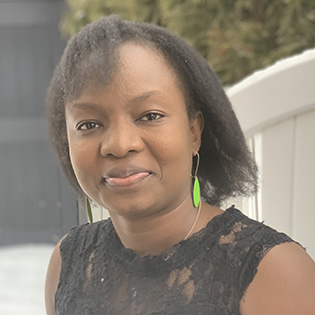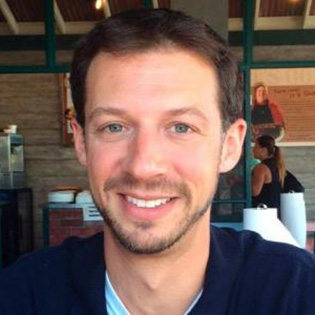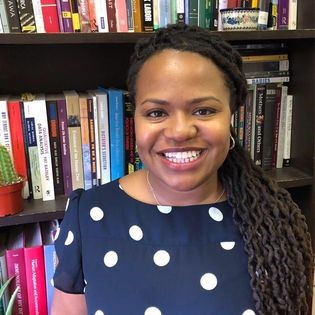School of Human Evolution and Social Change welcomes 5 new faculty

Image courtesy of Pexels.com
Five new faculty members joined Arizona State University’s School of Human Evolution and Social Change this fall, bringing expertise on topics including food security, human evolution, climate change and family dynamics.
“These scholars bring incredible expertise to ASU, reflecting both the breadth and depth of our school’s mission,” said Christopher Stojanowski, director of the School of Human Evolution and Social Change.
“We’re working to understand the human condition across time, place and cultures. These colleagues will help us answer important questions about the human story, particularly in Africa and among African diasporic communities.”
Since its founding in 2005, the school has emerged as a unique academic environment where studies of bones, stones, cultures and primates take place alongside mathematical modeling of viral diseases and clean water initiatives.
Faculty incorporate the traditional fields of archaeology, bioarchaeology, evolutionary and sociocultural anthropology with perspectives from environmental social science, global health and applied mathematics.
The new faculty members are:
Yohannes Haile-Selassie, professor
Haile-Selassie has been conducting paleontological fieldwork research in the Afar region of Ethiopia for almost 30 years and has made a number of fossil discoveries that had significant impact on human origins research. Since 2005, he has been leading the Woranso-Mille Paleontological Research Project and continues to conduct annual fieldwork in the Woranso-Mille area of the Afar region of Ethiopia.
Haile-Selassie’s primary research interest is understanding the paleobiology and paleoecology of ancient human ancestors based on the fossil record. He is also interested in the taxonomy and phylogenetic relationships of early human ancestors, earlier diversity in the human lineage and the origin of genus Homo. He is a recipient of numerous federal and private foundation grants and is a fellow of the American Association for the Advancement of Science. Haile-Selassie founded Ko-K-Yo Foundation, a non-profit 501(c)(3) organization that promotes child education and women empowerment in the villages within the boundaries of his study area in the Afar region.
He received his Bachelor of Arts degree in history from Addis Ababa University (Ethiopia) and his master's degree in anthropology and PhD in integrative biology from the University of California at Berkeley.
Haile-Selassie joined ASU in July as director of the Institute of Human Origins.
Elisabeth Kago IIboudo Nébié, assistant professor
Ilboudo Nébié brings extensive research experience in the Sahel region of West Africa. Most of her work focuses on Burkina Faso, her home country, and Senegal.
Ilboudo Nébié integrates ethnography with spatial and participatory research methods to examine environmental changes, climate adaptation, food security and mobility.
Trained as both an anthropologist and an international development expert, Ilboudo Nébié seeks to produce research that informs inclusive policies, sustainable development programming and humanitarian interventions. She brings experience working for the International Development Research Centre, the International Livestock Research Institute and the International Research Institute for Climate and Society.
Ilboudo Nébié received a Bachelor of Arts degree in international public relations from Université Libre du Burkina. A Fulbright scholar, she obtained a Master of Arts degree in international development and social change from Clark University and graduated with doctoral and master’s degrees in anthropology from the University of North Carolina at Chapel Hill.
Ilboudo Nébié also joins the Center for Global Discovery and Conservation Science.
Matthew Kroot, assistant professor
Kroot is an anthropological and historical archaeologist who works primarily in West Africa, the Middle East and the western U.S. His work in southeastern Senegal, in collaboration with U.S.- and Senegalese-based scholars and community leaders, focuses on the development of egalitarian institutions and practices in village-based societies within the context of hierarchical political communities.
In west-central Jordan, his research explores the development of exclusionary economic relations and communitywide institutions that work against the potential inequalities that such relations can facilitate.
His work in Northern California, in collaboration with representatives from San Francisco Bay Area Indigenous Ohlone communities and non-Native scholars, develops digital resources that present archaeological and historical data to the public using the principles of rhetorical and data sovereignty.
Kroot received a Bachelor of Arts degree in anthropology from Johns Hopkins University and doctoral and master’s degrees in anthropology from the University of Michigan.
Robin Nelson, associate professor
Nelson is a biological anthropologist who uses evolutionary theory in studies of family dynamics and health outcomes for adults and children.
Having conducted a decade of research in Jamaica, her recent work explores the relationship between growth outcomes and residential context for Jamaican children. She examines what happens to the social and physical health of children when the home, as it is articulated in West Indian communities, is not available to them. She is currently developing a project exploring the lives of Black immigrants and their children in Toronto, Canada. With a focus on critical periods of growth and development, she investigates culturally salient forms of social and financial capital and the health of peoples from the Caribbean and African diaspora.
In addition to this primary research, she has worked extensively on issues surrounding equity in science, the history of race science and biological anthropology, and sexual harassment and assault in field settings.
Nelson received a Bachelor of Arts in anthropology with honors from Brown University. She received doctoral and master’s degrees in anthropology from the University of Michigan. Nelson lives in Tempe, Arizona, with her husband and two school-aged children. She looks forward to cooler temperatures to explore hiking trails with her family and black lab, Junebug.
Denise Su, associate professor
Su is an evolutionary anthropologist interested in the paleoecology of early hominins, specifically how paleoenvironmental factors and changes might have affected the trajectory of human evolution.
Su’s research is focused on early hominin sites in eastern Africa and using the faunal community to provide insight into the environments of our early ancestors. Other areas of research include the fauna and paleoecology of terminal Miocene deposits in China.
Su received a Bachelor of Arts in anthropology from the University of California, Berkeley, and master’s and doctoral degrees in anthropology from New York University. Su is an elected fellow of the American Association for the Advancement of Science.
Su returned to academia after several years overseeing education and community outreach initiatives and programs at the Cleveland Museum of Natural History.
She also joins the Institute of Human Origins as a research associate.
More Arts, humanities and education

ASU’s Humanities Institute announces 2024 book award winner
Arizona State University’s Humanities Institute (HI) has announced “The Long Land War: The Global Struggle for…

Retired admiral who spent decades in public service pursuing a degree in social work at ASU
Editor’s note: This story is part of coverage of ASU’s annual Salute to Service.Cari Thomas wore the uniform of the U.S. Coast…

Finding strength in tradition
Growing up in urban environments presents unique struggles for American Indian families. In these crowded and hectic spaces,…




